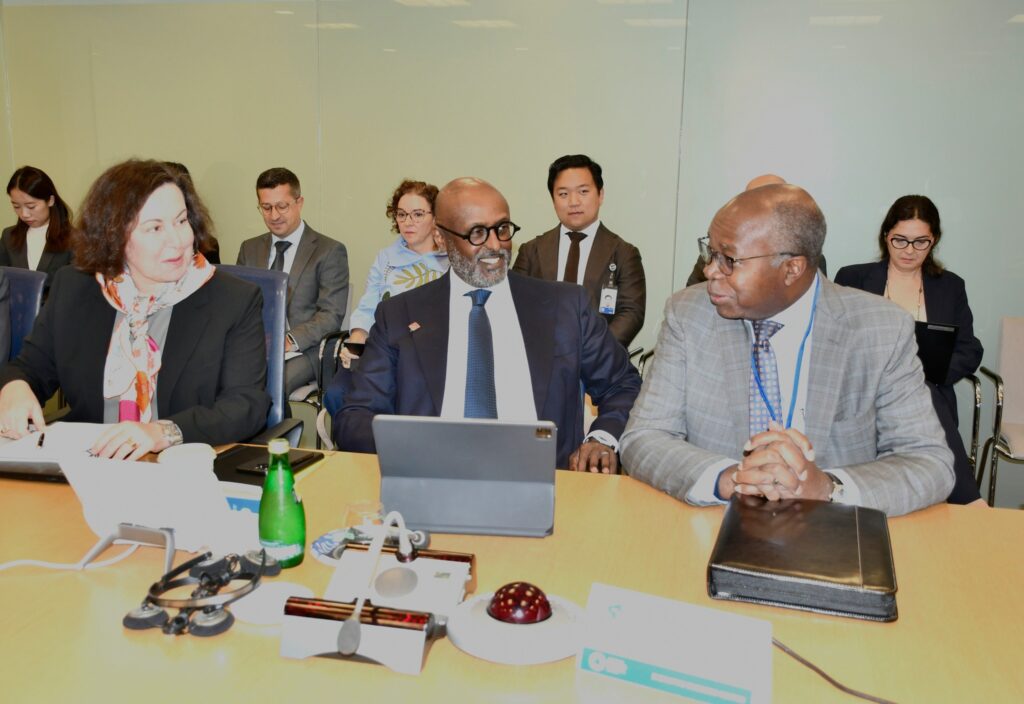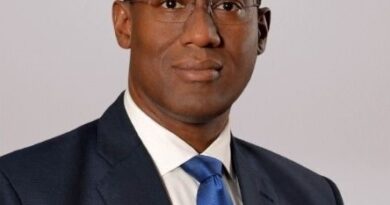IMF and World Bank Hear Zambia’s Bold Path to Inclusive Growth
The Zambian delegation has commenced high-level engagements at the Annual Meetings of the International Monetary Fund (IMF) and World Bank Group, showcasing the country’s ongoing economic reforms and efforts to foster inclusive growth across multiple sectors.
During bilateral discussions with IMF Deputy Managing Director Nigel Clarke and IMF Africa Department Director Abebe Selassie, Finance and National Planning Minister Dr. Situmbeko Musokotwane outlined Zambia’s reform agenda, which focuses on stabilising the economy while expanding energy, agriculture, tourism, mining, ICT, and manufacturing.
“Over the past four years, we have achieved significant progress toward economic stabilisation and fiscal consolidation,” said Dr. Musokotwane. “The economic reforms we are implementing are opening doors for expansion in agriculture, tourism, mining, ICT, the green economy, and export-oriented manufacturing.”
Dr. Clarke commended Zambia for its progress in the debt restructuring process and the substantial implementation of reforms under the Extended Credit Facility (ECF), urging the delegation to maintain its reform and growth trajectory.
The Zambian delegation also held discussions with World Bank Vice President for East and Southern Africa, Ndiame Diop, agreeing on the need to deepen reforms to ensure broad-based growth and job creation. The talks emphasised that reforms should yield tangible results for citizens, particularly in youth employment and private-sector participation.
Dr. Musokotwane highlighted the significance of the Annual Meetings as a platform to engage with other nations, international institutions, and investors, facilitating knowledge exchange, capital mobilisation, and partnerships aimed at accelerating Zambia’s economic growth and improving livelihoods. He also expressed Zambia’s gratitude for the World Bank’s support during the COVID-19 pandemic, recent droughts, and ongoing partnership across multiple sectors.
In addition, the delegation participated in the Commonwealth Finance Ministers Meeting (CFMM), held on the sidelines of the Annual Meetings. The session, chaired by Malta’s Minister of Finance, Hon. Clyde Caruana, reviewed global debt challenges, fiscal resilience, and opportunities for shared growth among member nations. Dr. Musokotwane called for greater use of digital resources to enhance domestic revenue mobilisation.
“The CFMM remains a vital platform for constructive dialogue among Commonwealth member countries on both global and domestic economic issues,” said Dr. Musokotwane.
Commonwealth Secretary-General Hon. Shirley Botchwey commended member nations for their innovative approaches to capacity building and economic resilience, citing tools such as blue bonds for ocean conservation, catastrophe bonds, and the Commonwealth Meridian system used in 41 countries to strengthen debt management.
Among the key engagements, the Zambian delegation attended the World Bank Development Committee Meeting and the International Monetary and Financial Committee (IMFC), forums that advise the IMF and World Bank on development priorities, financial resources, and progress in addressing global economic challenges.
The Zambian delegation comprises Dr. Musokotwane, Secretary to the Treasury Mr. Felix Nkulukusa, Bank of Zambia Governor Dr. Denny Kalyalya, Zambia Revenue Authority Commissioner General Mr. Dingani Banda, Presidential Economic Advisor Dr. Pamela Nakamba, and Permanent Secretary for Budget and Economic Affairs Ms. Mwaka Mukubesa. Parliamentary representation at the Global Parliamentary Forum includes MPs Mischeck Nyambose and Chushi Kasanda, while Zambia’s Ambassador to the U.S., Dr. Chibamba Kanyama, and Permanent Representative to the UN, Dr. Chola Milambo, provide diplomatic support.
Reflecting on the meetings, Dr. Musokotwane emphasised that Zambia remains on a steady path toward restoring confidence, creating opportunities, and securing a better future for citizens. He stressed that every engagement is focused on delivering tangible outcomes, including youth employment, access to capital for SMEs, and sustained investment in energy, agriculture, and industry.
“The international community has recognised Zambia’s progress in stabilising the economy and managing debt responsibly. This recognition demonstrates that Zambia is once again seen as a country ready for investment, partnership, and shared prosperity,” Dr. Musokotwane said.
As the Annual Meetings continue, the Zambian delegation remains committed to translating discussions into real economic outcomes, including stronger private-sector growth, increased opportunities for decent work, and improved public services for communities across the country.



